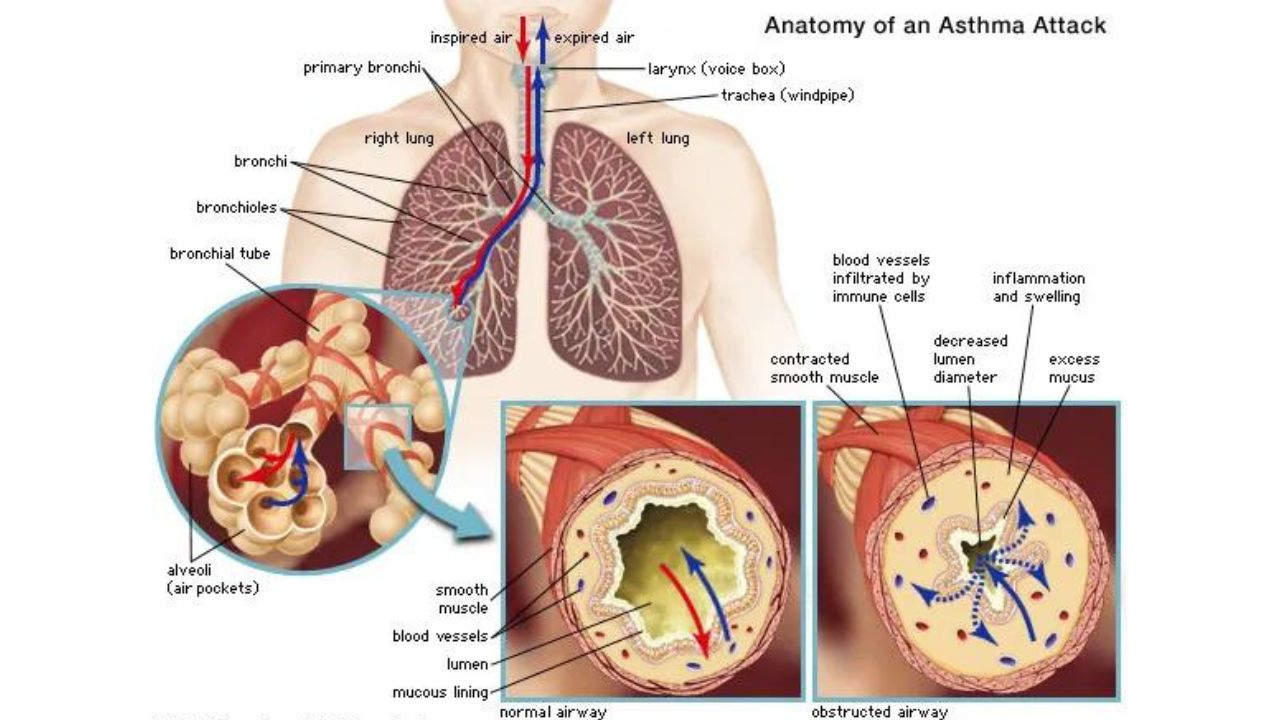
Bronchial Asthma in India: Causes, Symptoms, and Risks
What is Bronchial Asthma?: Bronchial Asthma In India Bronchial asthma is a chronic respiratory condition characterized by the swelling and narrowing of the airways in the lungs. This inflammation leads to excessive mucus production, making it difficult to breathe. Common symptoms include coughing, shortness of breath, and wheezing. Asthma affects individuals of all ages and genders and is influenced by both environmental and genetic factors. In India, over 1 million cases are reported annually, and while it is treatable, untreated asthma can have severe consequences.
Symptoms of Bronchial Asthma
Asthma symptoms can vary widely from person to person and may be persistent or intermittent. Typical symptoms include:
- Breathing Difficulties: Trouble breathing during activities like running, laughing, or talking.
- Chest Tightness: A feeling of tightness or pain in the chest.
- Sleep Issues: Breathing problems or sleep apnea during the night.
- Wheezing and Coughing: Wheezing or coughing, especially noticeable at night or while lying down.
- Cold and Flu: Exacerbation of symptoms due to viral infections such as the common cold or flu.
Causes of Bronchial Asthma
While the precise cause of asthma is not fully understood, it is influenced by environmental and genetic factors. Common triggers include:
- Allergens: Exposure to pollen, dust, animal dander, and mold.
- Infections: Viral infections like the cold or flu.
- Pollution: Air pollution, smoke, and car exhaust.
- Stress and Anxiety: Emotional stress and anxiety can trigger asthma.
- Exercise: Physical exertion can induce asthma symptoms.
- Medications: Reactions to drugs such as aspirin, ibuprofen, or beta-blockers.
- Acid Reflux (GERD): Gastroesophageal reflux disease may aggravate asthma.
- Scents and Perfumes: Strong smells and fragrances can trigger symptoms.
- Weather Changes: Abrupt temperature changes and weather conditions.
- Food Ingredients: Additives like MSG can be problematic.
Risk Factors for Asthma
Several factors can increase the likelihood of developing asthma:
- Family History: A parent or sibling with asthma increases risk.
- Allergic Conditions: Having hay fever, eczema, or other allergic conditions.
- Obesity: Weight gain and obesity can heighten asthma risk.
- Smoking: Smoking or exposure to secondhand smoke.
- Irritants: Exposure to chemicals, smog, or irritants from products like hair sprays and perfumes.
Managing Asthma in India
Early diagnosis and effective management are crucial for controlling asthma symptoms and improving quality of life. Regular use of inhalers and avoiding known triggers can help manage the condition. Consult a healthcare professional to develop a personalized treatment plan and ensure optimal control of asthma symptoms.




